Kimberly Brown is a meditation teacher, author, and speaker whose work explores the transformative power and wisdom of love. A Buddhist student for more than fifteen years, she guides individuals to create meaningful relationships through self-compassion, leads groups to develop connection and cooperation through metta (loving-kindness) meditation, regularly leads classes and retreats at meditation centers online and in-person, and mentors and trains new teachers.
Raised in the Midwest, Kimberly received a BS from Hunter College in physics and an MA from City College in English. She trained for several years as a psychoanalytic psychotherapist and is a Certified Mindfulness Instructor. She is the author of Steady, Calm, and Brave: 25 Buddhist Practices for Resilience and Wisdom in a Crisis and a regular contributor to Tricycle: The Buddhist Review and other publications. Kimberly lives in New York City with her husband. You can learn more about her work at www.meditationwithheart.com.


An imprint of Globe Pequot, the trade division of
The Rowman & Littlefield Publishing Group, Inc.
4501 Forbes Blvd., Ste. 200
Lanham, MD 20706
www.rowman.com
Distributed by NATIONAL BOOK NETWORK
Copyright 2022 by Kimberly Brown
Some names and identifying details have been changed and combined to protect the privacy of individuals.
All rights reserved. No part of this book may be reproduced in any form or by any electronic or mechanical means, including information storage and retrieval systems, without written permission from the publisher, except by a reviewer who may quote passages in a review.
British Library Cataloguing in Publication Information available
Library of Congress Cataloging-in-Publication Data Available
ISBN 978-1-63388-819-7 (pbk. : alk. paper) | ISBN 978-1-63388-820-3 (ebook)
 The paper used in this publication meets the minimum requirements of American National Standard for Information SciencesPermanence of Paper for Printed Library Materials, ANSI/NISO Z39.48-1992.
The paper used in this publication meets the minimum requirements of American National Standard for Information SciencesPermanence of Paper for Printed Library Materials, ANSI/NISO Z39.48-1992.
For Denise
We dont know how we will grieve until we grieve.
CHIMAMANDA ADICHIE
I have come to see that the great matter of birth and death is not great because its overwhelming and uncontrollable but because it is profound in its immense capacity to arouse a loving nature in us, bring attentiveness to living, and most importantly to seal an interrelationship between all that is born and will die. When we hear of a death we are reminded, like nothing else in life, that we are interdependent upon one another.
ZENJU EARTHLYN MANUEL
Guide
IVE KNOWN KIMBERLY BROWN FOR MORE THAN TEN YEARS AND truly admire her good heart and her dedication to helping others, all of it underpinned by her practice of Buddhas wise advice.
We all want to be happy and dont want suffering; our problem is that we allow ourselves to be pulled from pillar to post, struggling to deal with what life brings us, especially loss and grief.
Buddhas genius is his deep understanding of the mind, the inner workings of our own cognitive process. He gives us the skills to become intimately familiar with our thoughts and emotions and to radically reconfigure them, thus enabling us to live our lives with courage and compassion, for our own sake and the sake of others.
Kimberlys beautiful book is full of such advice, not just for Buddhists, but for everyone.
Robina Courtin, Buddhist teacher and editor
IN AUGUST 2011, A DOCTOR AT A HOSPITAL IN MID-CENTRAL WIS-consin called to tell me my mother was in the intensive care unit. She explained that Mom was suffering from dehydration and kidney failure and had been brought by ambulance to the emergency room. Sitting on my couch in my apartment in downtown Manhattan, I was angry and impatient, interrupting the doctor to ask, Is she dying? There was a pause as she considered her words. Well, I cant be sure... but it looks pretty bad. I think you might want to come here.
Which was exactly what I didnt want to do. My mom, suffering from chronic obstructive pulmonary disease as well as emphysema, had been in the hospital four times during the past year, discharging herself as soon as possible and refusing to comply with the doctors instructions to eat, take her medication, and quit drinking and smoking. I thought this time would be the same as the others, and I was mad even as I booked a flight to Mosinee Regional Airport and began packing. My friend Stephanie came by to help me, and as I sorted through my drawers and closets, she said, I think you should pack a dress. Annoyed, I asked, What for? To which she replied, Just in case theres a funeral.
I wore that dress a week later. Despite knowing that shed been in decline for several years, that her illnesses were progressive and worsening, that she was more than eighty years old, and that she badly abused her body, I was the last person to comprehend that my mother was dying and was utterly shocked when it happened.
When someone is alive, especially someone we love or know well, its almost impossible to imagine that theyll no longer be here. Even if, like my mom, theyve been sick for months or years, the irrevocable and mysterious nature of death feels almost beyond our comprehension. As a meditation teacher, one of the reasons I wrote this book is to remind myselfand you and everyone we knowthat death and loss are normal, common experiences, and we can develop skills to anticipate and accept them, even when theyre painful and sad.
Recently, the losses felt by my students, friends, family, and the world have been staggering. No one is immune to the effects of the coronavirus pandemic, and its commonplace to get laid off from a job, end a relationship, cancel an important event like a wedding or graduation, lose a loved one to this terrible virus, or simply grieve the end of our ordinary interactions with our communities. Thats another reason I wrote this bookto support all of us through grief and mourning, to remind us that bereavement is normal, and to let you know that you can go through it without being destroyed.
Buddhist students like me are continually reminded to recognize the impermanence of all things and to remember that every human will get sick, grow older, die, and lose all we hold dear. Were trained like this so we can face the truth of our precious and brief lives and help alleviate suffering for ourselves and others. Death and grief are unavoidable, but its possible to learn to respond to this fact of life in ways that are supportive and strengthen our relationships. The practices and meditations in this book can guide you through divorce, layoff, unexpected change, even deathwithout becoming overwhelmed and shutdown, angry and blaming, or frightened and looking for a way out. Instead, these traditional contemplations, which are rooted in Buddhist teachings, will help you develop compassion and wisdom to experience your grief directly, with kindness, and to heal. Theyre designed to help you to experience all of your feelings, even the most painful.
No matter who you are or what your backgroundyour race, sex, gender, ethnicity, culture, sexual orientation, class, religion, ability, or ageyou will experience the vicissitudes of life and death. This fact forces


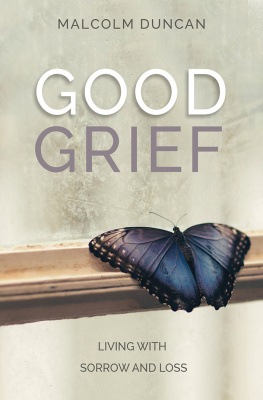
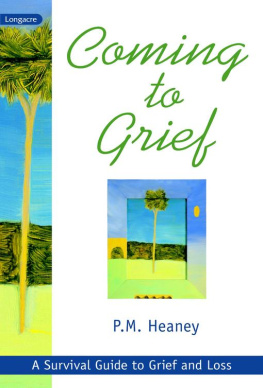
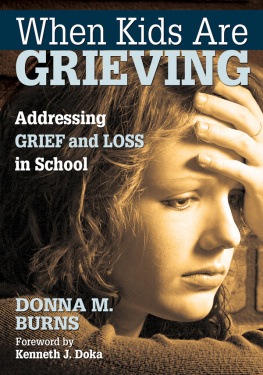
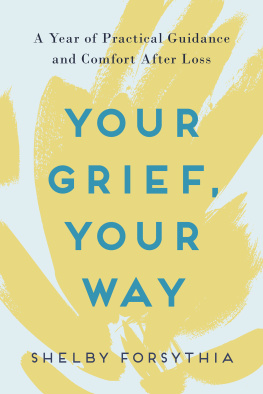
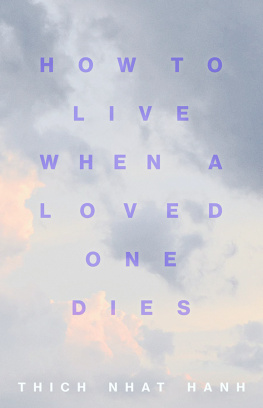
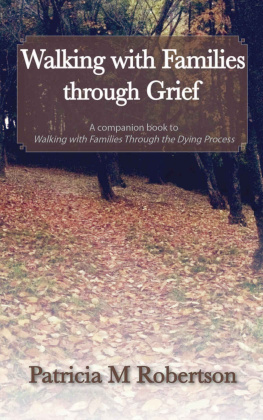



 The paper used in this publication meets the minimum requirements of American National Standard for Information SciencesPermanence of Paper for Printed Library Materials, ANSI/NISO Z39.48-1992.
The paper used in this publication meets the minimum requirements of American National Standard for Information SciencesPermanence of Paper for Printed Library Materials, ANSI/NISO Z39.48-1992.